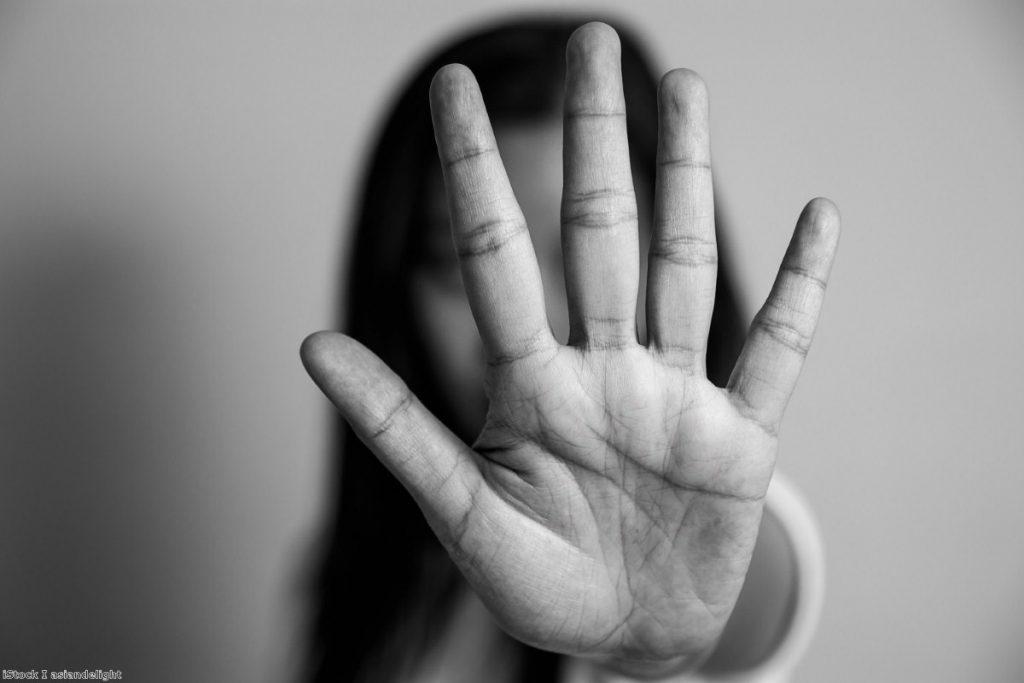By Sian Norris
Last week the UK government's domestic abuse bill went through the Commons on the way to the Lords. There is a lot to praise in it. Children are now included as victims of domestic abuse, and a domestic abuse commissioner has been appointed. Attempts by Conservative MP Philip Davies to include a gender neutral definition of domestic abuse failed to pass – a welcome defeat which recognises how women make up the majority of victims and men make up the majority of perpetrators.
But there was one crucial area where the bill failed to deliver. And that failure will deny support to some of the most vulnerable victims in society: migrant women.
MPs voted 330 to 207 against New Clause 22 to lift the no-recourse-to-public-funds rule for migrant women experiencing domestic abuse. This was in spite of campaigning from specialist domestic abuse organisations including Southall Black Sisters, Latin American Women's Rights Service, and Step Up Migrant Women, as well as opposition MPs and mainstream charities.


The no recourse to public funds policy forms part of the government's Hostile Environment approach to immigration. It means that people who are "subject to immigration control" have no right to access publicly funded help, including some welfare like housing benefit.
For migrant women who are subject to immigration control, having no recourse to public funds makes it incredibly difficult to escape a violent relationship. Refuges funded by housing benefit are closed to them. They cannot access Universal Credit or local authority housing, making it harder to start a new life and to support themselves and their children.
The result is that women face an impossible choice: stay with an abuser, or leave without having access to support. Sandhya Sharma, from the migrant women's rights charity Safety4Sisters told a Fabian Women’s Network event the day after the vote: "Women are starving, they're destitute. What do you think is going to happen when you take away women's access to safety? You can't use immigration as a way to determine women's safety" But that is just what the government has opted to do.
The bill has created a tiered system where only certain victims are considered deserving of help. As Pragna Patel, the director of Southall Black Sisters, explained: "The decision to leave migrant women out of this bill sends the message that their lives are not valued, they are disposable, they are second-class people, they are invisible."
Even the government's own draft guidance essentially admits that no-recourse-to-public-funds is a barrier to women getting out of abusive situations. And yet, despite that acknowledgement, they still chose to vote against helping women escape violent homes.
The situation is exacerbated by the ways in which a woman's immigration status is often weaponised by her abuser. This can include an abuser withholding their victim's documents, so she doesn't know what kind of visa she has and therefore if she is entitled to help. It can also include threats of deportation, in order to frighten their victim into silence.
By denying women in this situation access to public funds, the government is sending a message to women that the state is happy to join their abuser.
The government will now run a £1.5 million "support for migrant victims pilot scheme" which seeks "to determine how we can ensure that victims can obtain immediate access to support". This indicates that we could finally be about to see a change of course on this issue.
But as Labour MP Yvette Cooper pointed out in the debate, the government could simply lift the requirements during the pilot. "It is not enough to respond to pilots," she said. "We should be taking some action while we wait for those pilots to conclude."
Cooper is correct. While this pilot trundles on, how many more women will be trapped in abusive homes? How many more women will be struggling to escape – unable to access life-saving funds? How many more women will stay, fearful that leaving will lead to deportation? How many more women will die?
This isn't the only issue with the domestic abuse bill, but it is a major one, and it tells us something deeply worrying about the government's attitude towards migrant women. "We are talking about people," Labour's Jess Phillips said, "humans, who, when they have been raped, beaten, controlled and abused, before we ask them how we can help, first we ask what stamp is in their passport."
That cannot be right. As Rosie Lewis from the Angelou Centre told the Fabian Women's Network: "If the domestic abuse bill isn't for all women, it's not a bill at all."
Sian Norris is a writer and feminist activist. She is the founder and director of the Bristol Women's Literature Festival. You can follow her on Twitter here.
The opinions in Politics.co.uk's Comment and Analysis section are those of the author and are no reflection of the views of the website or its owners.









